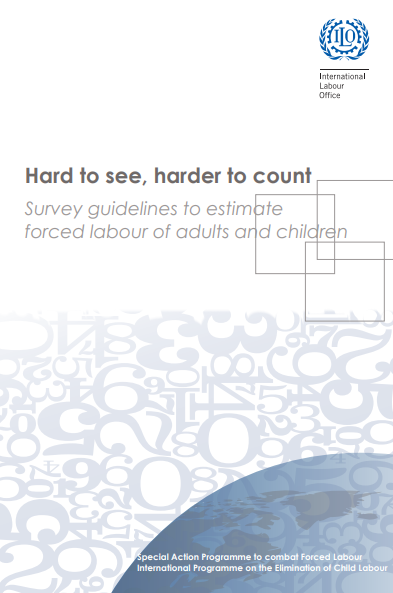These guidelines share the experience gained and lessons learned by the ILO between 2008 and 2010 through quantitative surveys of forced labour and human trafficking undertaken at country level. They aim to provide comprehensive information and tools to enable national statistical offices and research institutes to undertake national surveys on forced labour of adults and/or children.
These guidelines present an operational definition of what constitutes forced labour, and indicators with which to identify it, list the steps to be followed by countries wishing to implement a survey on forced labour, describe sampling techniques that may be suitable for surveying specific situations of forced labour, propose a minimum set of questions necessary to assess forced labour, provide guidance on data analysis, and present some ethical considerations with regard to research on forced labour, including considerations specific to children.

